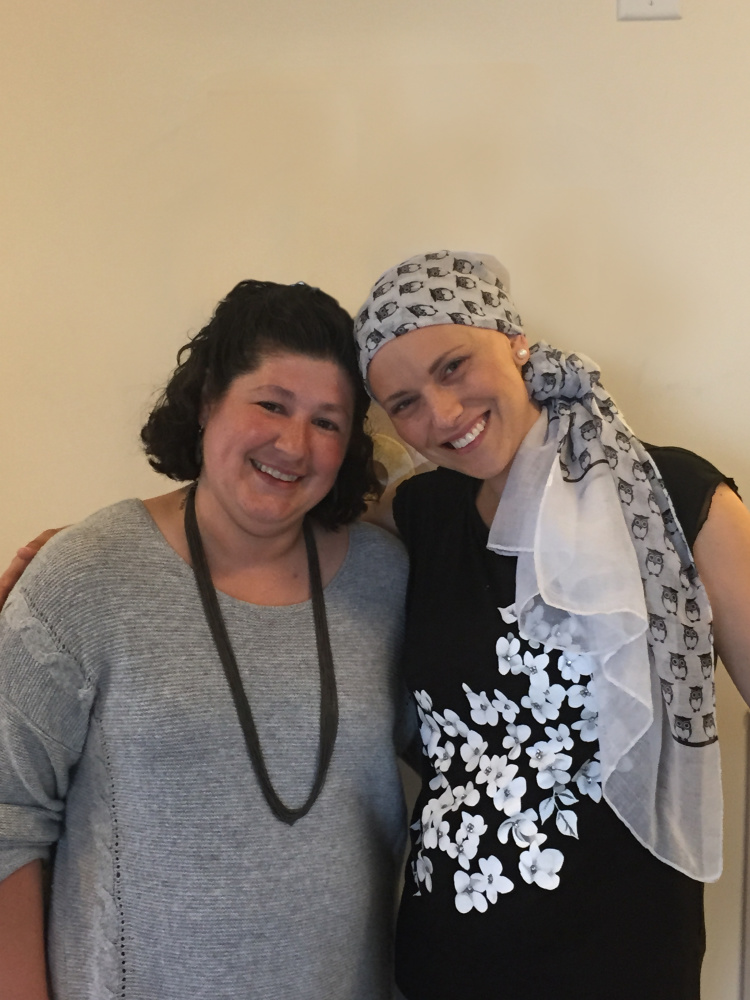
By Melissa Angiolillo
When I was diagnosed with stage III breast cancer at age 35, I was overcome with fear. Buried within that fear was guilt that I wasn’t handling my diagnosis the “right” way. The pressure to be positive was overwhelming. It seemed as though I was expected to wrap myself in a pink ribbon and chant ‘The Fight Song’ on cue. Positivity, cancer patients are often told – by our friends, family, and even well-meaning strangers – will affect our outcomes and our treatment.
I found support from Dana Farber’s Program for Young Women with Breast Cancer and Soul Mates, but I knew that only one person could truly resolve my inner turmoil. That was me.
I recall a visit with my oncologist, Dr. Burstein, when the chemotherapy was taking a physical toll and the pressure to be positive was taking a mental toll. I told him that I was trying to stay positive, but that I was afraid my children, ages 6, 4, and 1 at the time, would grow up without a mother. I was afraid of recurrence; I was afraid, quite frankly, of death.
In that moment, it was as if he signed a permission slip for me to be authentic. “Although it makes you a very easy patient,” he said with a smile, “positivity does not cure cancer.”
I took that permission slip, and with my social worker, Julie Salinger, as my chaperone, I took a field trip and visited all of the feelings that I had been trying to push aside. I began to acknowledge the fear within my hope, the weakness within my strength, and the realism within my optimism.
I am passing along their wisdom in the following tips.
- If the pressure to be positive becomes overwhelming, try a different feeling. Sometimes facing your fear, head-on, is helpful.
- It is normal to have conflicting feelings. Allow them to coexist.
- There is no right way or wrong way to have cancer. Be your most authentic self.
Melissa Angiolillo and three other survivors spoke on a patient panel at the Forum for Young Women with Breast Cancer, sponsored by the Susan F. Smith Center for Women’s Cancers, in October 2016. Read her blog post about the peer mentor support program Soul Mates, and listen to a related podcast.

I totally agree with you. When I was going through treatment for pancreatic cancer, I was determined to maintain who I was throughout the ordeal. This meant that if I wanted to be bitchy, I would be bitchy, because I normally get bitchy sometimes. I’m also a perfectionist and I insisted on maintaining my high standards for everything. I also truly realized that as everyone’s cancer is different, so is everyone’s reaction to it. You don’t give up who you are just because you are fighting a disease.